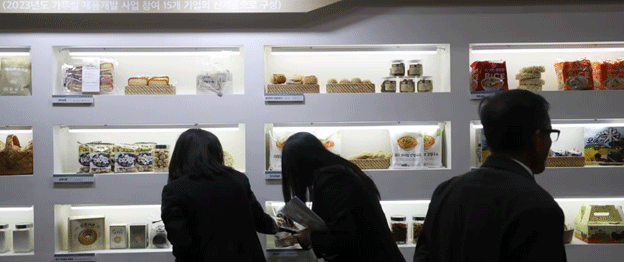The South Korean government is recalibrating its flour rice policies to address surplus rice issues, focusing on boosting production and consumption synergy. Following the 2022 Flour Rice Industry Activation Plan, MAFRA established specialized production zones across 2,042 hectares, yielding 7,400 tons of flour rice. However, only 2,000 tons of the 6,500-ton government inventory (excluding seed reserves) have been utilized as of September 2024. This highlights a significant gap in demand.
Current State of the Flour Rice Industry
To address these challenges, MAFRA commissioned a study to evaluate existing policies and formulate a roadmap for industry growth. The study will analyze:
- Usage Trends: How flour rice is currently integrated into the food processing sector.
- Industrial Context: Domestic food ingredient markets and their compatibility with flour rice.
- Growth Projections: Potential annual growth trajectories for the flour rice sector.
The ministry also plans to develop a cohesive industry ecosystem, focusing on:
- Production to Distribution Chain: Streamlining roles across farming, drying, processing, and retail sectors.
- Demand Forecasting: Linking production levels with anticipated market needs.
Flour Rice’s Role in Sustainable Agriculture
Flour rice (or bunjirimi), known for its fine texture suitable for milling into flour, offers a sustainable alternative to traditional wheat imports. It presents an opportunity to diversify Korean agriculture, especially in processed food markets like rice-based snacks, bread, and pasta.
The 2022 initiative aimed to position flour rice as a staple ingredient for food manufacturing, reducing reliance on imported wheat. However, barriers such as limited market penetration and consumer awareness have stalled progress.
What’s Next for the Flour Rice Policy?
MAFRA’s recalibration focuses on long-term stability through:
- Roadmap Development: A step-by-step guide for scaling flour rice integration into industrial and consumer markets.
- Collaboration: Partnerships with processing and distribution companies to create innovative products.
- Awareness Campaigns: Promoting the health and sustainability benefits of flour rice to boost demand.
Revamping the flour rice strategy reflects the government’s commitment to sustainable agriculture while tackling the pressing issue of surplus rice. By addressing systemic inefficiencies and fostering innovation, the flour rice industry could emerge as a pivotal solution for Korea’s agricultural challenges. However, its success will hinge on robust demand generation and effective policy execution.
Error





